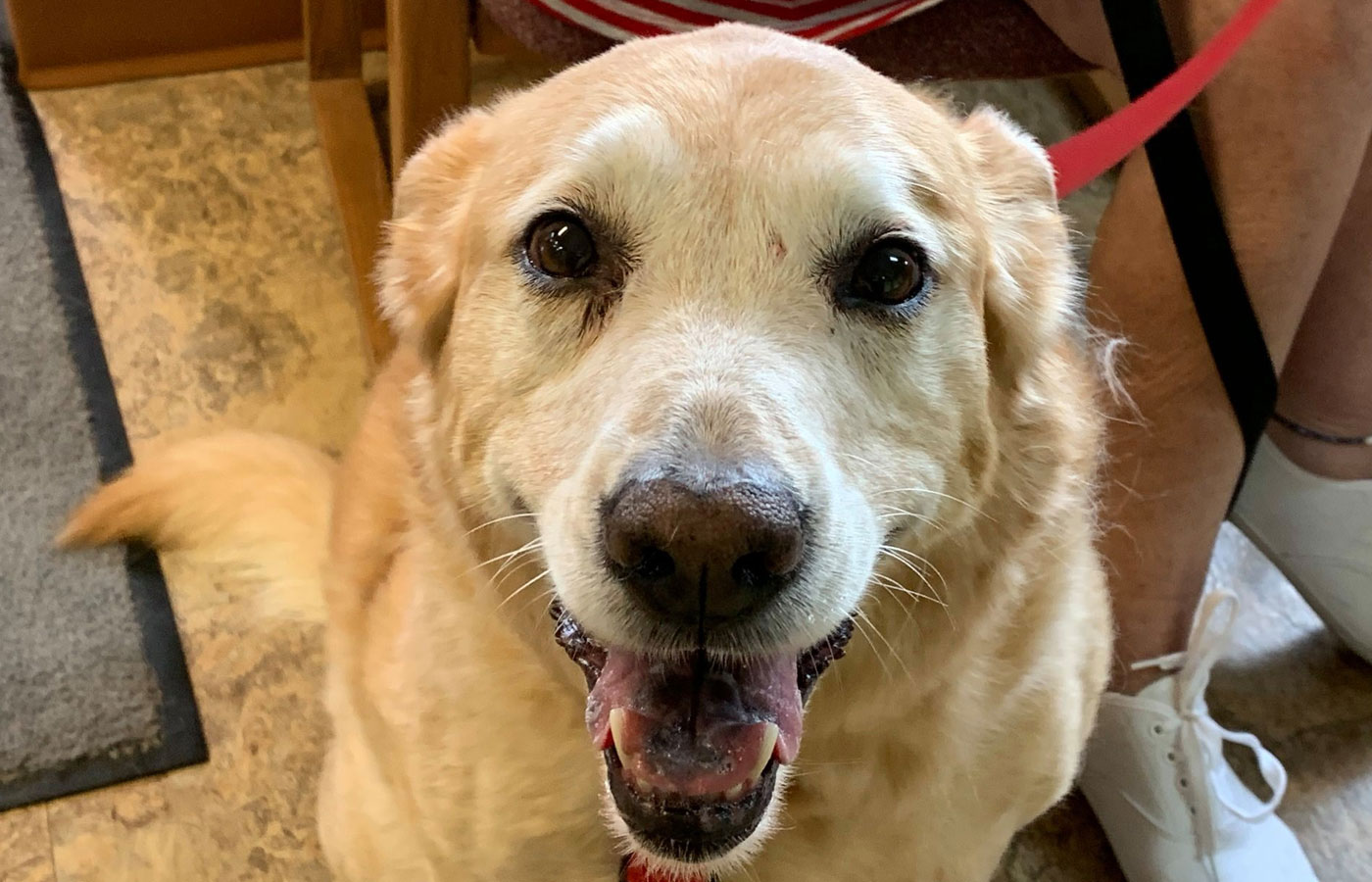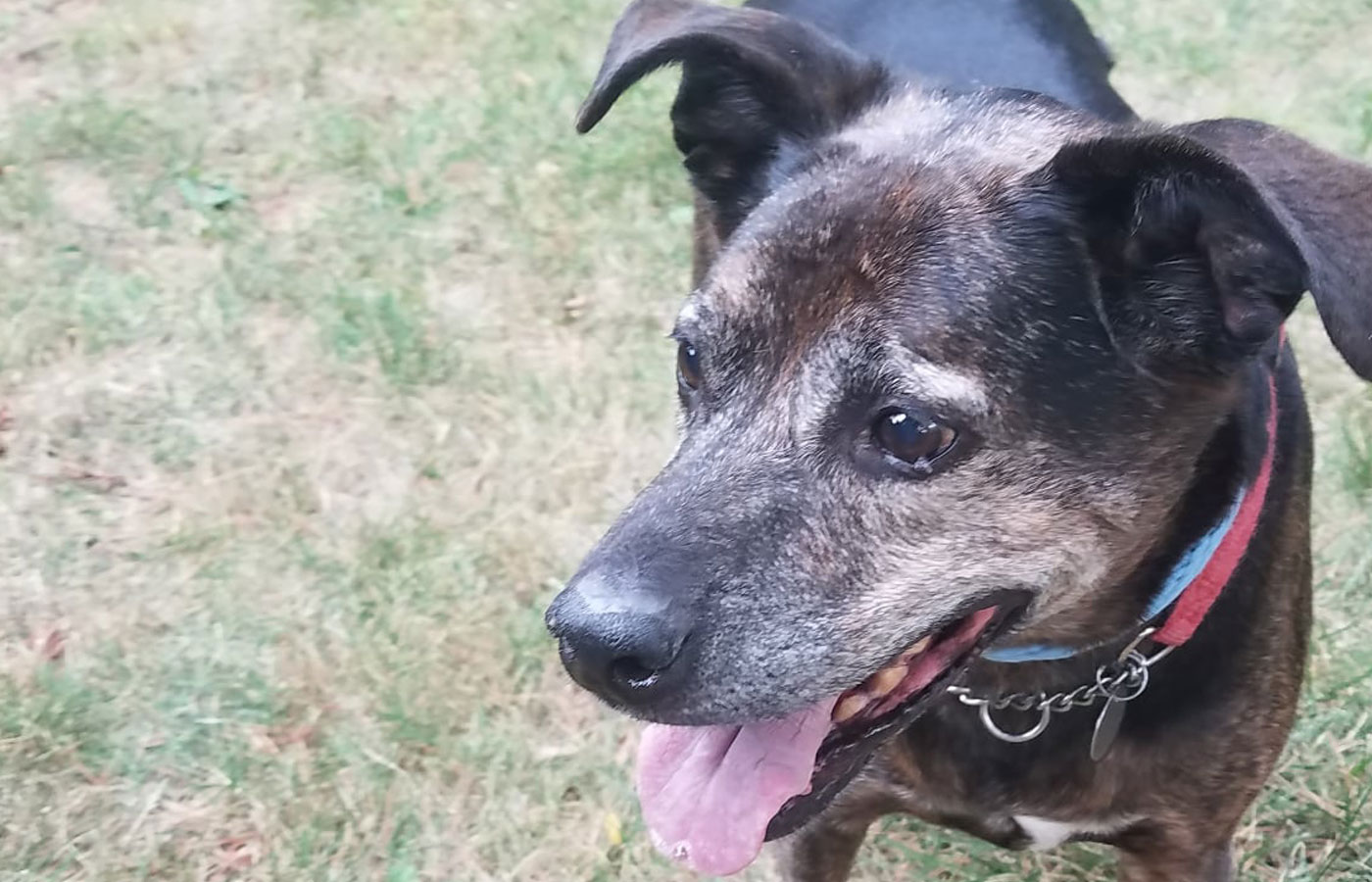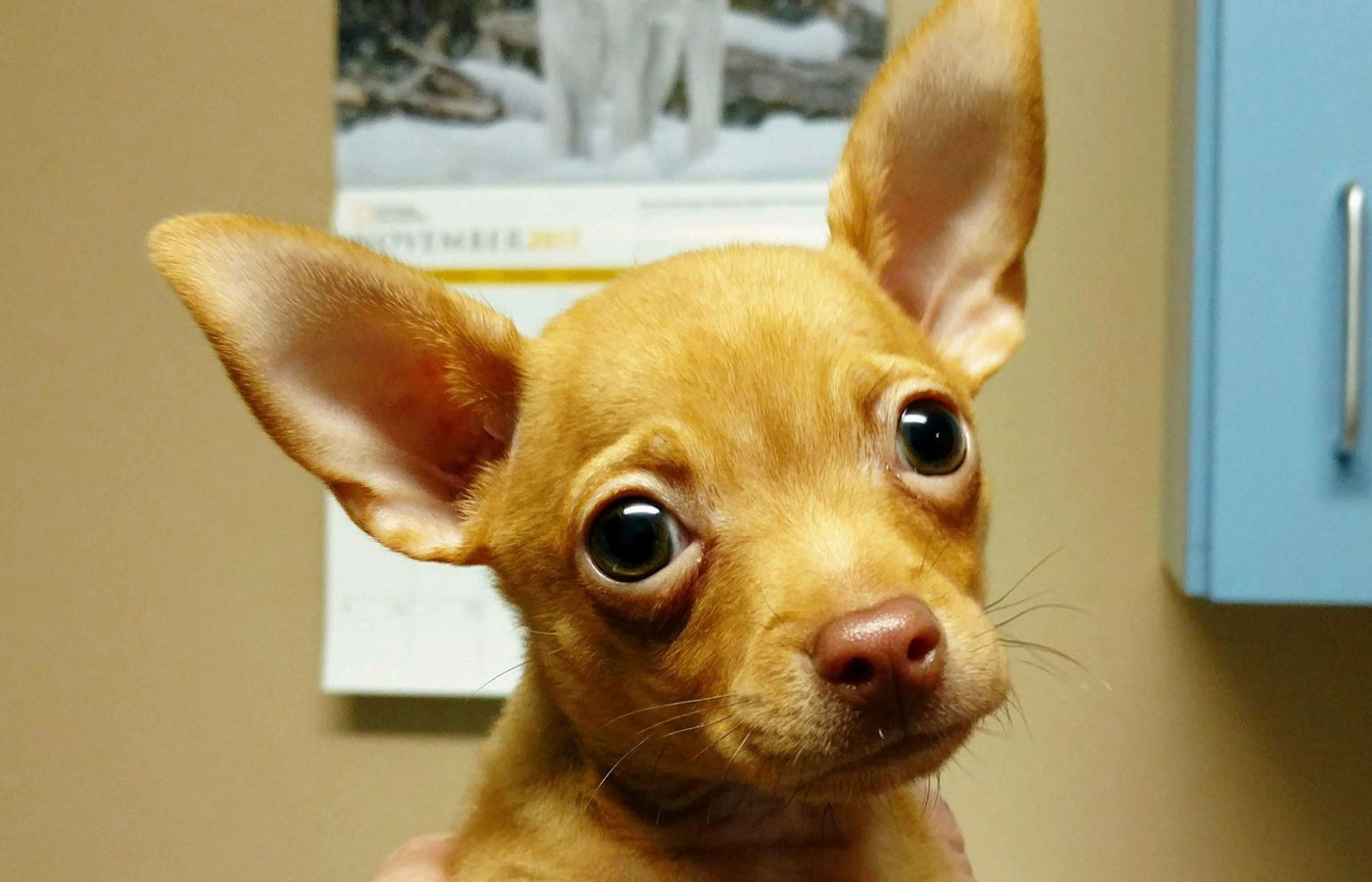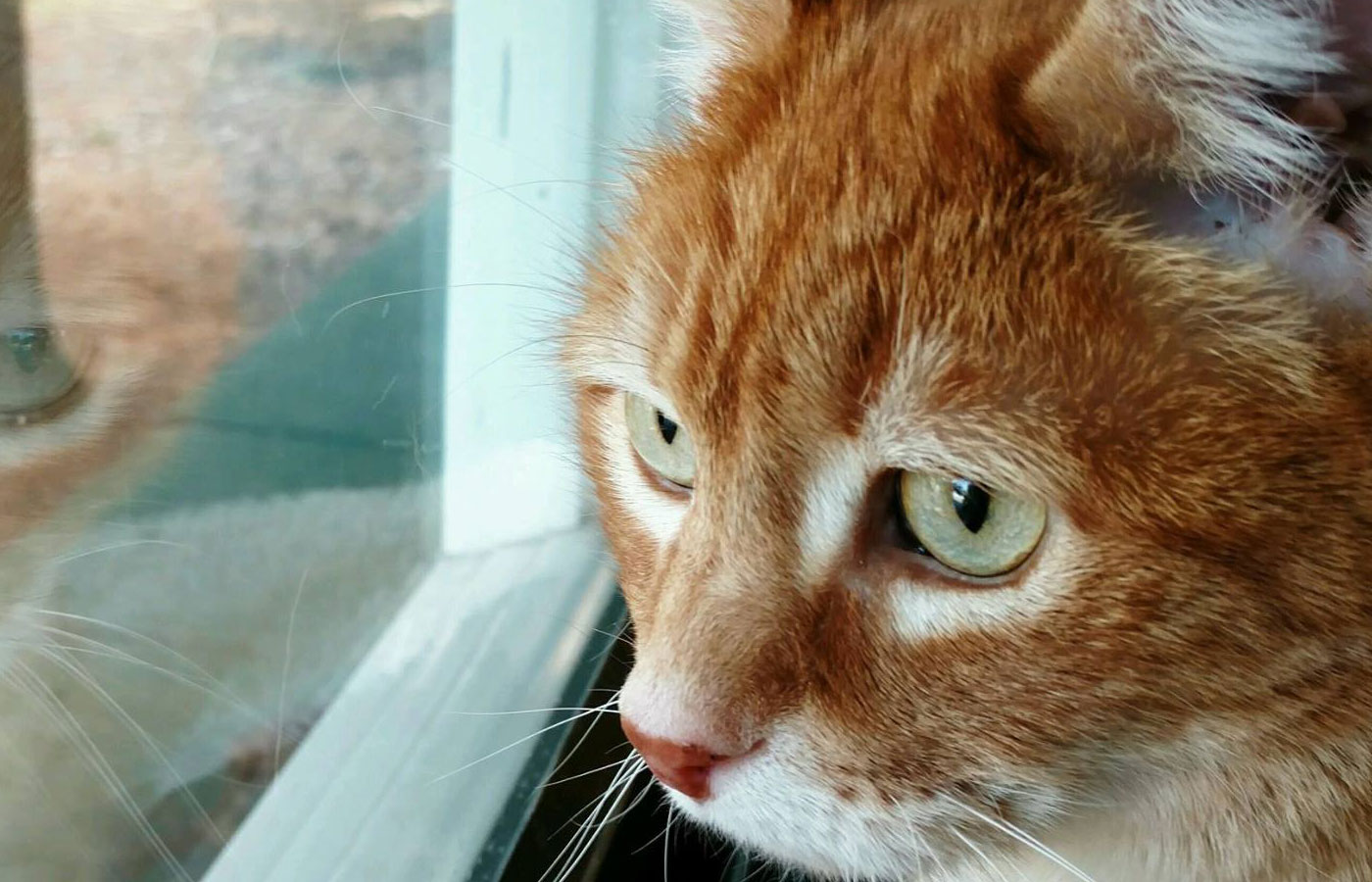Dog Wellness Care

Northwest Animal Hospital’s comprehensive annual exams include checking their overall health by taking their temperature, examining skin and coat, lung and cardiac function, internal health, oral hygiene, eyes,
ears, and demeanor.
Read More
- Vaccinations: Keeping your canine up to date on immunizations and booster shots is a highly effective way to prevent many common diseases and infections like distemper and rabies. Beyond those core vaccines, your pet’s age, lifestyle, and likely exposure to certain diseases will be evaluated before we recommend additional inoculations.
- Dental Care: Imagine what your teeth would be like if you never cleaned them. Well, the same thing is happening to your dog’s teeth without good oral care. We recommend annual dental cleanings and can show you tips for brushing your pet’s teeth, which can reduce the need for expensive extractions and more serious dental work down the line.
- Parasite Control: Fleas, ticks, worms – preventing them in the first place is much easier and ultimately less expensive than getting rid of them after they’ve infested your pet. We recommend monitoring your pet and having them screened for internal parasites regularly, and we offer a variety of alternatives for flea, tick, and heartworm prevention.
- Proper Nutrition: There’s so much confusion about what to feed dogs. Grain-free kibble? Home-cooked meals? Raw food diet? Proper nutrition is so important to your pet’s good health, and we can help you figure out what is best for your pet and your lifestyle.
- Behavioral Evaluation: Changes in mood or behavior can often be a symptom of an underlying medical condition. Swiftly addressing these shifts can help to identify and treat the root cause.
- Skin and Coat Care: Grooming and washing are fundamental aspects of proper pet hygiene. Proper skin and hair care can prevent things like mange, matting, bacterial infections and more.
- Exercise: Regular workouts support musculoskeletal and cardiovascular health in dogs of all ages, as well as improve their overall mental well-being.
- Senior Animals: At Northwest Animal Hospital, we love elder pets! We also know that preventative care is even more significant for them. Dogs age much more rapidly than humans, so diseases and illness progress faster as well. We recommend twice-yearly exams and screenings for seniors to help prolong and improve the quality of their life.
Cat Wellness Care

Annual exams are your pet’s first line of defense. Northwest Animal Hospital’s comprehensive annual exams include checking their overall health by taking their temperature, examining skin and coat, lung and
cardiac function, internal health, oral hygiene, eyes, ears, and demeanor.
Read More
- Vaccinations: Keeping your cat up to date on immunizations and booster shots is a highly effective way to prevent many common diseases and infections like distemper and rabies. Beyond those core vaccines, your pet’s age, lifestyle, and likely exposure to certain diseases will be evaluated before we recommend additional inoculations.
- Dental Care: Imagine what your teeth would be like if you never cleaned them. Well, the same thing is happening to your cat’s teeth without good oral care. We recommend annual dental cleanings and can show you tips for brushing your pet’s teeth, which can reduce the need for expensive extractions and more serious dental work down the line.
- Parasite Control: Fleas, ticks, worms – preventing them in the first place is much easier and ultimately less expensive than getting rid of them after they’ve infested your cat. We recommend monitoring your pet and having them screened for internal parasites regularly, and we offer a variety of alternatives for flea, tick, and heartworm prevention.
- Proper Nutrition: There’s a lot of choices when it comes to what to feed your feline friend. Cats are true carnivores and making sure they get proper nutrition is very important to their health. Our veterinarians can help you figure out what is best for your cat and your lifestyle.
- Behavioral Evaluation: Changes in mood or behavior, lack of grooming, or litterbox problems can often be a symptom of an underlying medical condition. Swiftly addressing these shifts can help to identify and treat the root cause.
- Skin and Coat Care: Cats are fastidious by nature, but felines with long, thick coats and those who live indoors still may need regular brushing, grooming, and nail trims. Proper skin and hair care can prevent things like mange, matting, bacterial infections and more.
- Exercise: Cats are athletic creatures and getting enough exercise–especially if they live indoors–is extremely important in maintaining cardiovascular health and a healthy weight.
- Senior Animals: At Northwest Animal Hospital, we love elder pets! We also know that preventative care is even more significant for them. Cats are living longer than ever, making them more susceptible to disease and illness as they age. We recommend twice-yearly exams and screenings for senior cats to help prolong and improve the quality of their life.
Senior Wellness

It can be hard to admit when we see the signs of old age in our animal companions, but the fact is that most dogs are considered seniors when they hit seven, cats around nine. Pets age much more rapidly
than humans, which means diseases and illness progress quicker as well.
To ensure that your pet has the longest, healthiest, most comfortable life possible, Northwest Animal Hospital encourages you to bring your senior pet for exams and blood tests twice each year. This way, we can track how your pet is aging, and we’ll be more likely to catch any developing diseases before they’re big problems.
Blood tests are one of the most important parts of a senior exam. These blood screenings—often referred to as a “senior panel”— monitor red and white blood cell counts and reveal how well the kidney, liver, pancreas, and thyroid are functioning. Your vet may recommend a chest x-ray to ensure that the heart is a normal size and that there are no masses in the lungs.
Periodontal disease is always a threat to our pets’ health and comfort, and it’s particularly tough on older pets. That’s why a dental exam is always part of any senior pet screening as well.
Finally, make sure to let your vet know about any behavior changes in your pet. Once dogs and cat get to the geriatric stage, monitoring for signs of cognitive dysfunction—such as losing housebreaking, getting lost or wandering aimlessly—is very important.
To schedule a wellness exam for your senior pet, call us at 614-451-4772.
Read More
To ensure that your pet has the longest, healthiest, most comfortable life possible, Northwest Animal Hospital encourages you to bring your senior pet for exams and blood tests twice each year. This way, we can track how your pet is aging, and we’ll be more likely to catch any developing diseases before they’re big problems.
Blood tests are one of the most important parts of a senior exam. These blood screenings—often referred to as a “senior panel”— monitor red and white blood cell counts and reveal how well the kidney, liver, pancreas, and thyroid are functioning. Your vet may recommend a chest x-ray to ensure that the heart is a normal size and that there are no masses in the lungs.
Periodontal disease is always a threat to our pets’ health and comfort, and it’s particularly tough on older pets. That’s why a dental exam is always part of any senior pet screening as well.
Finally, make sure to let your vet know about any behavior changes in your pet. Once dogs and cat get to the geriatric stage, monitoring for signs of cognitive dysfunction—such as losing housebreaking, getting lost or wandering aimlessly—is very important.
To schedule a wellness exam for your senior pet, call us at 614-451-4772.
Read More
Parasite Prevention

Fleas, ticks, and mosquitoes aren’t just a summer problem! Warming temperatures mean year-round prevention is key to making sure your pet is protected from these pests or the diseases they may carry.
Don’t overlook the problems they can cause: Fleas often trigger dermatitis, tapeworm, and hot spots; one tick bite can transmit numerous dangerous diseases and mosquitoes carry potentially deadly heartworm.
In addition to preventive medications, you should thoroughly check your pets for fleas and ticks on a daily basis if they’ve been outdoors. Although fleas and ticks can be anywhere on your pet’s body, they prefer posting up near the head, ears, neck, and paws. You can spot evidence of fleas if you notice little black specks that resemble pepper or bits of dirt.
Both the incidence of Lyme disease from tick bites and heartworm from mosquitoes are on the rise around the country. Lyme disease is rarely fatal, but heartworm is more so because often there are no symptoms until the disease is well advanced. While there is treatment for dogs, it can be expensive and very hard on your pet.
Prevention is always the best treatment! We carry many different types of flea, tick and heartworm preventive and your Northwest Animal Hospital veterinarian can help you choose which one is right for your pet. For more information or to schedule an appointment, call us at 614-451-4772.
Read More
In addition to preventive medications, you should thoroughly check your pets for fleas and ticks on a daily basis if they’ve been outdoors. Although fleas and ticks can be anywhere on your pet’s body, they prefer posting up near the head, ears, neck, and paws. You can spot evidence of fleas if you notice little black specks that resemble pepper or bits of dirt.
Both the incidence of Lyme disease from tick bites and heartworm from mosquitoes are on the rise around the country. Lyme disease is rarely fatal, but heartworm is more so because often there are no symptoms until the disease is well advanced. While there is treatment for dogs, it can be expensive and very hard on your pet.
Prevention is always the best treatment! We carry many different types of flea, tick and heartworm preventive and your Northwest Animal Hospital veterinarian can help you choose which one is right for your pet. For more information or to schedule an appointment, call us at 614-451-4772.
Read More
Vaccinations

Vaccinating your pet is a relatively inexpensive but very important way to protect his or her health. In addition to preventing many life-threatening illnesses, vaccinations can prevent
diseases prevalent in wildlife and those that can be passed to humans. It’s important to administer vaccinations when pets are puppies and kittens because their young immune systems are still developing and need protection to stay healthy.
While any medical treatment involves some degree of risk, in the case of vaccinations, the benefits far outweigh any potential side effects. Adverse reactions are rare and usually mild and short-term when they do occur.
Which vaccines should your pet have? “Core” vaccines are those recommended—and possibly mandated by law—for most pets. Core vaccines include:
Other non-core, but highly suggested vaccinations for cats include FIV for feline immunodeficiency virus and FeLV to protect against feline leukemia. For dogs, Bordetella and Canine Influenza shots are recommended if they frequent dog parks, boarding kennels, or any place where they’re socializing with other canines.
It’s also important to note that even pets who live primarily indoors should be vaccinated, as they can still be exposed to disease. Your Northwest Animal Hospital veterinarian can advise you which vaccinations are required or recommended for your pet based on age, health, and lifestyle. For more information or to schedule an appointment, call us at 614-451-4772.
Read More
While any medical treatment involves some degree of risk, in the case of vaccinations, the benefits far outweigh any potential side effects. Adverse reactions are rare and usually mild and short-term when they do occur.
Which vaccines should your pet have? “Core” vaccines are those recommended—and possibly mandated by law—for most pets. Core vaccines include:
- Rabies (dogs and cats)
- DA2PPV – Distemper, Hepatitis, Adenovirus 2, Parvo and Parainfluenza (dogs)
- FVRCP – Feline Viral Rhinotracheitis, Calicivirus and Panleukopenia (cats)
It’s also important to note that even pets who live primarily indoors should be vaccinated, as they can still be exposed to disease. Your Northwest Animal Hospital veterinarian can advise you which vaccinations are required or recommended for your pet based on age, health, and lifestyle. For more information or to schedule an appointment, call us at 614-451-4772.
Read More
In-House Pharmacy

Northwest Animal Hospital is proud to have a fully stocked in-house pharmacy where you can purchase your pet’s medications, flea, tick and heartworm preventives and prescription diets.
When you buy directly from us, prescriptions can be filled right on site, and you can be sure of their safety and effectiveness. Also, your purchase is logged in your pet’s medical record, so our veterinarian knows your pet is getting the correct medication.
Also, the manufacturers of many parasite preventives specify that their products only be sold directly by veterinarians. This is so product guarantees remain intact and ensures that manufacturers pay 100% of the diagnosis and necessary treatment of adverse reactions or product defects.
We hope you appreciate our level of care and invite you to call us if you have any questions or concerns.
Read More
When you buy directly from us, prescriptions can be filled right on site, and you can be sure of their safety and effectiveness. Also, your purchase is logged in your pet’s medical record, so our veterinarian knows your pet is getting the correct medication.
Also, the manufacturers of many parasite preventives specify that their products only be sold directly by veterinarians. This is so product guarantees remain intact and ensures that manufacturers pay 100% of the diagnosis and necessary treatment of adverse reactions or product defects.
We hope you appreciate our level of care and invite you to call us if you have any questions or concerns.
Read More
Internal Medicine

Sometimes diagnosing a health issue means piecing together all the information you have about a pet—their lifestyle, medical history, clinical signs, lab results, imaging and testing—to create a clear
picture of the problem.
At Northwest Animal Hospital, we have the experience and state-of-the-art technology to assess your pet’s condition as accurately as possible, and to provide advanced treatment, hospitalization, surgery, and specialist referrals if necessary.
Some of the conditions and diseases treated with internal medicine include:
Pets can’t tell us specifically how they’re feeling, so having a skilled veterinary internist can mean a more positive outcome for your pet. To schedule an appointment for your pet, call us at 614-451-4772.
Read More
At Northwest Animal Hospital, we have the experience and state-of-the-art technology to assess your pet’s condition as accurately as possible, and to provide advanced treatment, hospitalization, surgery, and specialist referrals if necessary.
Some of the conditions and diseases treated with internal medicine include:
- diabetes
- thyroid issues
- infectious diseases
- anemia
- inflammatory bowel disease and other gastrointestinal disorders
- hepatitis
- acute or chronic kidney failure
- asthma and respiratory conditions
- pneumonia and bronchitis
- fever
Read More
Behavior Counseling

Behavior issues are something most pet owners face at one time or another and sadly, they can create such frustration it breaks the bond between pet and person. At Northwest Animal Hospital our
veterinarians and technicians are experienced and educated about behavior problems and can provide help through training suggestions, environmental changes at home, and potentially prescribe medications to help calm your pet and facilitate other behavioral modification training.
Some typical behavior issues that we can help you with include:
Initially, it’s always important to rule out a medical or physical cause for the behavior, especially if it is a sudden change. Pets can’t tell you when something is wrong, so the behavior could be the symptom of a serious health problem. If you notice your pet acting abnormally you should schedule an appointment with us as soon as possible.
To schedule an appointment or consultation with a veterinarian, call us at 614-451-4772.
Read More
Some typical behavior issues that we can help you with include:
- Separation anxiety
- Noise aversion
- Inappropriate elimination/litterbox issues
- Excessive barking
- Obsessive licking/lick granulomas
- Chewing
- Pica/Coprophagia
- Aggression/Irritability
To schedule an appointment or consultation with a veterinarian, call us at 614-451-4772.
Read More
Nutritional Counseling

Ever heard the expression that “you are what you eat”? Well, the same is true for our pets. A nutrition-rich diet is your pet’s first line of defense and a cornerstone of preventive care. Proper daily nutrition will go
a long way in keeping your pet healthy by bolstering the immune system and supporting normal development in younger animals.
Every pet’s nutritional needs are different, based on age, breed, health conditions and lifestyle factors—which can make choosing the right pet food complicated. At Northwest Animal Hospital our veterinarians and staff can take the guesswork out of feeding your pets by advising you about what’s right for your animal.
Have questions or concerns about what your pet is eating? Call us at 614-451-4772.
Read More
Every pet’s nutritional needs are different, based on age, breed, health conditions and lifestyle factors—which can make choosing the right pet food complicated. At Northwest Animal Hospital our veterinarians and staff can take the guesswork out of feeding your pets by advising you about what’s right for your animal.
Have questions or concerns about what your pet is eating? Call us at 614-451-4772.
Read More


